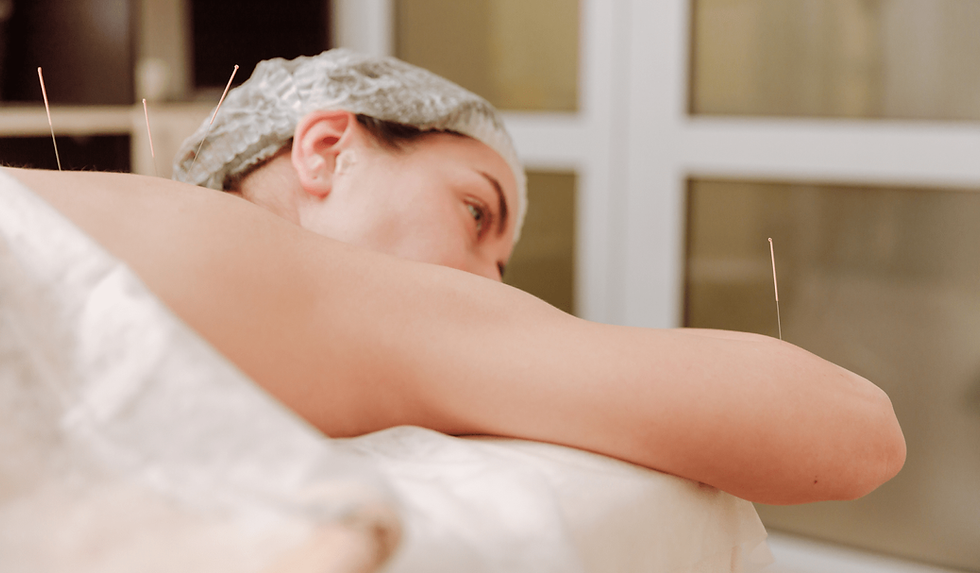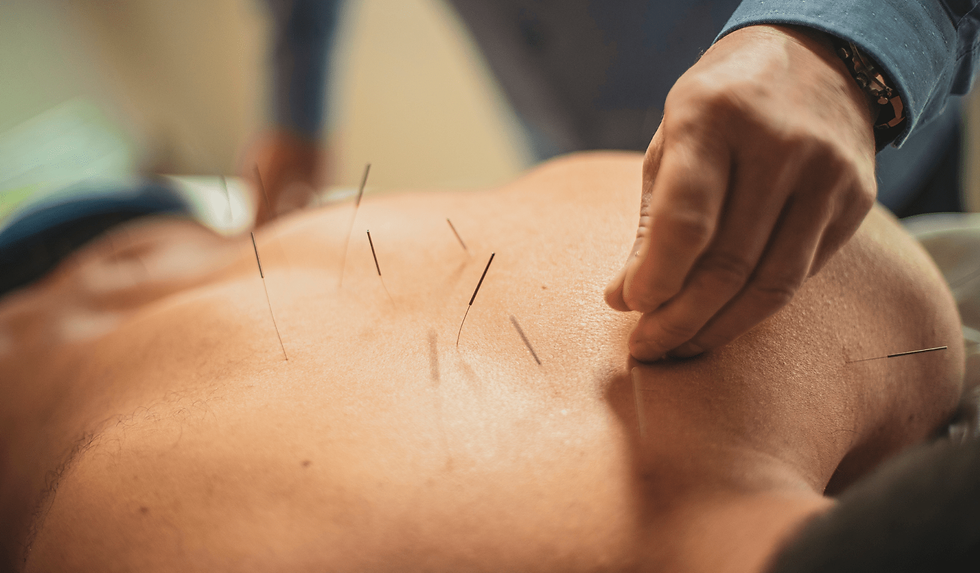Detox Symptoms After Acupuncture: What They Mean for Your Health and Healing
- 2199jessica
- Aug 6, 2025
- 5 min read

Feeling tired, achy, or emotionally off after your acupuncture session? These experiences are more common than you might expect. Known as detox symptoms after acupuncture, they can include everything from headaches and fatigue to mild digestive upset or mood swings. While they may feel uncomfortable in the moment, they often signal that your body is actively recalibrating—releasing stagnation, flushing out toxins, and resetting its natural balance.
To better understand and support this process, consider visiting a clinic like ACA Acupuncture and Wellness, where licensed practitioners offer comprehensive treatments including acupuncture, Tuina massage, and other Traditional Chinese Medicine therapies. These approaches work together to promote circulation, restore balance, and guide the body through natural detoxification. Whether it’s your first session or part of an ongoing wellness plan, recognizing these symptoms as part of the healing journey can help you feel more empowered and aligned with your recovery.
What Are Detox Symptoms After Acupuncture?
Detox symptoms after acupuncture are short-term physical or emotional responses that may arise as your body begins to rebalance after treatment. These effects occur as acupuncture stimulates circulation, unblocks stagnant energy, and encourages the release of stored toxins. While they may feel unfamiliar or slightly uncomfortable, they are often a positive indication that your system is actively healing.
Common detox symptoms include:
Mild fatigue or drowsiness
Headaches or general body aches
Emotional sensitivity or mood swings
Digestive changes such as bloating or changes in bowel movements
Skin breakouts or increased sweating
These reactions are usually temporary and signal that your body is processing tension, eliminating waste, and moving toward a healthier internal state.
Why Do These Symptoms Happen?

Detox symptoms after acupuncture occur because the body is shifting from a state of imbalance toward internal harmony—and that transition can stir things up. In Traditional Chinese Medicine (TCM), illness or discomfort is often linked to stagnation of Qi, blood, or emotional energy. Acupuncture works by stimulating specific meridian points to restore the smooth flow of Qi and promote proper circulation. When these stagnant areas begin to move, the sudden shift can temporarily overwhelm the body’s detox pathways, leading to mild physical or emotional responses. This process is often called a healing crisis and is viewed as a necessary step in clearing toxins and restoring balance.
From a biomedical perspective, acupuncture triggers measurable changes in the nervous, immune, and endocrine systems. By activating the parasympathetic nervous system—the body’s natural “rest and digest” mode—acupuncture slows stress signals, lowers cortisol levels, and boosts circulation to vital organs. This shift allows the body to release accumulated metabolic waste, inflammatory byproducts like lactic acid, and even long-held emotional tension stored in the fascia and soft tissues. These reactions may present as fatigue, brain fog, digestive changes, or increased emotional sensitivity.
Whether viewed through the lens of Eastern medicine or modern science, the principle remains consistent: real healing requires the removal of blockages, waste, and patterns that no longer serve your health. Post-acupuncture detox symptoms are often the body’s way of clearing space for a more stable and resilient version of you to emerge.
Common Detox Symptoms and What They Might Signal
Detox symptoms after acupuncture can vary depending on your body’s current state and the focus of your treatment. Below are some of the most common reactions and what they may indicate about your healing process.
1. Fatigue or Drowsiness
What it means: Your body is shifting into a parasympathetic state, also known as “rest and repair.” This is a sign that your nervous system is regulating and redirecting energy toward internal healing.
What to do: Give yourself permission to rest. Stay hydrated with water or warm herbal teas and avoid overstimulation from screens or social media.
2. Mild Headaches
What it means: Improved circulation and energy flow can stir up stagnant areas, releasing stored tension or metabolic waste. Headaches may also signal dehydration or emotional overload being cleared.
What to do: Drink plenty of warm fluids, especially water or detox-supportive teas like ginger or peppermint. Avoid alcohol and caffeine for at least 24 hours post-treatment.
3. Digestive Changes
What it means: Acupuncture often stimulates the spleen, stomach, and liver meridians. If your treatment focuses on gut health or hormonal balance, you may notice changes in appetite, bowel movements, or bloating.
What to do: Stick to easy-to-digest foods such as soups, steamed vegetables, and cooked grains. Avoid heavy, greasy, or processed meals while your digestive system adjusts.
4. Emotional Release
What it means: Emotional energy can become lodged in the body, especially after trauma or long-term stress. As acupuncture releases stagnation, repressed feelings like sadness, frustration, or grief may surface.
What to do: Let the emotions move through you without resistance. Journaling, deep breathing, or speaking with a therapist or trusted friend can help you process what comes up.
5. Skin Reactions
What it means: Breakouts, rashes, or increased perspiration can be signs that your liver and lymphatic system are clearing internal waste. The skin is one of the body’s main detox pathways.
What to do: Avoid applying synthetic or heavy skincare products for a few days. Focus on gentle cleansing, hydration, and natural ingredients to support the skin’s elimination process.
How Long Do Detox Symptoms Last?

Most detox symptoms after acupuncture are mild and temporary, typically resolving within 24 to 72 hours. The intensity and duration can vary depending on your overall health, how your body processes energetic shifts, and the focus of your treatment. If you’re receiving acupuncture for chronic illness, autoimmune conditions, or hormone imbalance, the recovery window may be slightly longer as your system works to restore deeper equilibrium.
When to Embrace the Process—and When to Contact Your Practitioner
Experiencing subtle symptoms after a session can be a positive sign that your body is responding and beginning to heal. However, there are times when it’s important to reach out to your licensed acupuncturist. Get in touch if you experience:
Dizziness, fainting, or lightheadedness
Sharp pain or unusual swelling at needle sites
Intense fatigue, nausea, or emotional overwhelm that doesn’t ease
Symptoms lasting more than three to four days without improvement
Your practitioner can adjust the frequency or intensity of your sessions, recommend acupuncture recovery support like herbal formulas or dietary changes, and help you better navigate your healing process.
How to Support Your Body After Acupuncture
To ease discomfort and promote smooth detoxification after your session:
Drink plenty of filtered water or warm herbal teas to support elimination
Avoid alcohol, sugar, and processed foods for at least 24 to 48 hours
Prioritize deep rest and quality sleep to allow your body to integrate the session
Engage in gentle movement like walking, yoga, or stretching to support Qi flow
Acknowledge emotional shifts and allow time for reflection, journaling, or meditation
These simple actions can significantly improve how you feel post-treatment and help your body make the most of the therapeutic benefits.
Detox Is Not a Side Effect—It's a Sign of Progress
While post-acupuncture detox symptoms may come as a surprise, they’re not side effects in the traditional pharmaceutical sense. Rather than indicating harm, they often signal that your system is releasing what no longer serves it—whether that’s built-up metabolic waste, emotional stagnation, or blocked Qi. Acupuncture encourages the body’s innate healing intelligence to come forward. Detox symptoms are part of that unfolding, revealing not just temporary discomfort but long-term vitality waiting on the other side.




Hey there! I think it really depends on the person and what kind of escape they’re looking for. For example, a platform like casino-elon.com offers way more than just spinning slots — you’ve got live dealer games, classic tables, sports betting, and even virtual competitions. For some, immersing themselves in a new game or tournament can be a fun way to switch focus and take a mental break. The key is to approach it with balance and keep it as entertainment, not a solution to deeper problems.
Hello everyone. The article is really interesting, but I'm wondering if you can distract yourself from your problems by playing in an online casino?